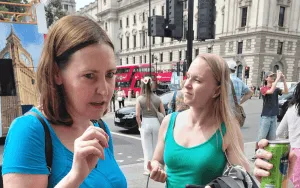 The government’s “bedroom tax” is causing “severe financial hardship and distress” to disabled people who can do nothing to avoid its impact, according to a committee of MPs.
The government’s “bedroom tax” is causing “severe financial hardship and distress” to disabled people who can do nothing to avoid its impact, according to a committee of MPs.
The work and pensions select committee said that the bedroom tax – or the spare room subsidy removal, as it is called by the government – was having a “particular impact” on disabled people who have adapted homes or need an extra room to hold medical equipment or accommodate a carer.
The committee said it was “deeply concerned that the policy is causing severe financial hardship and distress to people with disabilities, many of whom will not easily be able to move”.
The regulations, introduced last April, mean that tenants in social housing are punished financially if they are assessed as “under-occupying” their homes.
The committee, chaired by the disabled Labour MP Dame Anne Begg, recommends in the report that anyone living in a home that has been significantly adapted for them should be exempt from the bedroom tax.
The report on the government’s housing benefit reforms also recommends an exemption for all households containing someone receiving higher level disability living allowance or personal independence payment.
And if the government is unwilling to introduce these measures, the committee says it should provide an exemption for those disabled adults unable to share a room with a partner because of their impairment, or when a room is required for medical equipment, or for a carer.
Witnesses to the inquiry estimated that 60-70 per cent of households in England affected by the bedroom tax and 80 per cent of affected households in Scotland contain a disabled person.
And an estimated 100,000 affected households live in properties which have been adapted or were purpose-built to accommodate the tenant’s disability-related needs.
The latest estimates suggest the bedroom tax has affected half a million households, with an annual financial loss to households in the north of England’s three areas of £160 million, compared with £30 million in the south-east (not including London).
The committee says the bedroom tax is a “blunt instrument” for achieving the government’s wish to use social housing stock more efficiently and reduce overcrowding.
Dame Anne said: “The government has reformed the housing cost support system with the aim of reducing benefit expenditure and incentivising people to enter work.
“But vulnerable groups, who were not the intended targets of the reforms and are not able to respond by moving house or finding a job, are suffering as a result.”
She added: “Discretionary housing payments (DHPs), which local authorities can award to people facing hardship in paying their rent, are not a solution for many claimants.
“They are temporary, not permanent, and whether or not a claimant is awarded DHP is heavily dependent on where they live, because different local authorities apply different eligibility rules.”
The committee said it was “a particular concern” that some local authorities were taking income from disability benefits into account in the means tests they applied for determining eligibility for DHP awards, and that this practice should be stopped.
The committee called on the Department for Work and Pensions to monitor the impacts of its reforms “carefully” and take “urgent remedial action where necessary to assist the hardest hit claimants, particularly as many of them may be affected by other welfare reforms, including those to disability and incapacity benefits”.
Meanwhile, the Child Poverty Action Group is acting in a judicial review for two disabled grandparents, Paul and Susan Rutherford, whose 13-year-old disabled grandson Warren needs 24-hour care by at least two people.
Two paid care workers stay overnight in their adapted, three-bedroom bungalow at least twice a week.
But as a result of the bedroom tax, the family have been found to be “under-occupying” their home and have had their housing benefit cut.
Although the regulations allow for an extra bedroom if the claimant or their partner needs overnight care, this does not apply if a disabled child needs an overnight care worker.
The Rutherfords’ lawyers are arguing that this discriminates against disabled children, under the European Convention on Human Rights. A high court hearing is set to take place on 14 May.
2 April 2014

 ‘Disastrous’ cuts bill that leaves legacy of distrust and distress ‘must be dropped’
‘Disastrous’ cuts bill that leaves legacy of distrust and distress ‘must be dropped’ Silence from MP sister of Rachel Reeves over suicide linked to PIP flaws, just as government was seeking cuts
Silence from MP sister of Rachel Reeves over suicide linked to PIP flaws, just as government was seeking cuts Disabled MP who quit government over benefit cuts tells DNS: ‘The consequences will be devastating’
Disabled MP who quit government over benefit cuts tells DNS: ‘The consequences will be devastating’